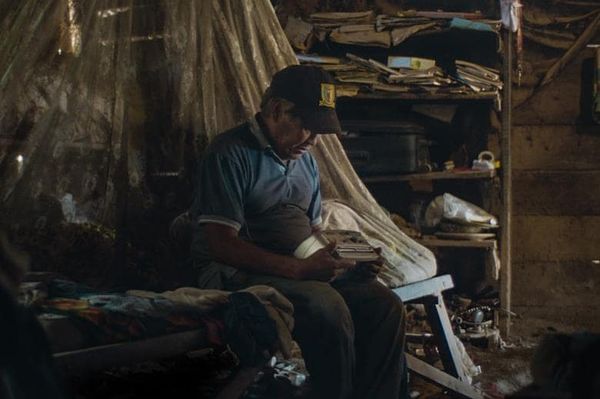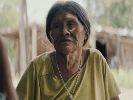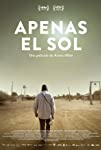Eye For Film >> Movies >> Nothing But The Sun (2020) Film Review
Nothing But The Sun
Reviewed by: Amber Wilkinson

Director Arami Ullón's film offers a lament for what has been lost and what continues to be eroded in a dust swept part of Gran Chaco in Paraguay, as she considers the Ayoreo people and, more specifically, Mateo Sobode Chiqueno's attempts to record and preserve the culture and songs of his forebears.
The film performs a sort of double listening, as the director plays close attention to Mateo as he, in turn, asks other members of his community to recount their memories and traditions - all in stark contrast to the successive bands of white people who, this documentary indicates, have done nothing but tell them what to think and do. Like so many indigenous peoples, the Ayoreo's story is not a happy one and one that has been marred by successive incursions into their traditional hunter-gatherer forest territory, chiefly by missionaries looking for the "uncontacted" to evangelise.

Ullón adopts a spare but attentive approach, not imposing herself or archive upon the film but instead letting Mateo and others tell this story through their conversations and via the old cassette player he uses to capture them. Many recall frightening first encounters with "white people", some being chased and losing parents as a result, while others speak of the diseases that came with the various Christian groupings - from Salesians to Mennonites - including deadly measles. The cultural dominance is evident in the way that shamanic rituals have been swapped for the Christian faith many now espouse, although others talk of a feeling of "constant conflict" or feeling "in the middle of two worlds".
Everything about this film feels fragile, from the old pieces of cassette tape catching in the wind as they are being rewound on to spools, to nature, with carcasses of animals seeming to litter the landscape. Deforestation is in evidence and Mateo voices his fears for those remaining members of the "uncontacted" Aroyeo, whose lands and way of life continue to be under threat from farmers. Whatever the white missionaries intentions, the end result is shanty towns which lack amenities and where many survive on derisory small government bimonthly handouts. This is in contrast to the richness of some of the stories we hear, of songs that speak of portents or a woman's ritual which celebrates the Ayoreo's "continuous consciousness".
It sounds depressingly accurate when one contributor observes, "Maybe the sun is the only thing the white people don't count their property yet". Whatever the future may hold, this is a rich heritage under existential threat. "When you record something, you're taking care of it," Mateo is told - his care, and that of Ullón sing through every frame.
Reviewed on: 16 Nov 2021
















